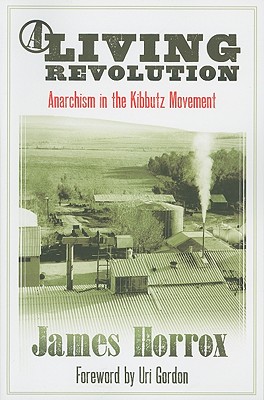Yes, this review is a bit late, for a book published in 2009, but this is a book we really didn’t want you to miss out on.
 If you’re interested in Israel, then finding out that the foundation stones of the new society, the co-operatives known as kibbutzim, were explicitly as well as implicitly inspired by anarchism is pretty extraordinary.
If you’re interested in Israel, then finding out that the foundation stones of the new society, the co-operatives known as kibbutzim, were explicitly as well as implicitly inspired by anarchism is pretty extraordinary.
If you’re interested in anarchism, then learning how these super-egalitarian communes have evolved over the last century (in very difficult circumstances) is a fascinating story – particularly the more recent development of new collectives which reject the old kibbutz forms.
During the second and third waves of Zionism in the early 20th century, rich European Jews funded semi-anarchist communities in Palestine filled with (often Russian) idealists because they worked, unlike the top-down, hierarchical plantations, which failed economically.
Since the establishment of the state of Israel, the kibbutzim have also worked by providing the most loyal, high-achieving special forces troops in the Israeli Defence Forces. Just some of the paradoxes explored here.
While the book is very Jewish-centred (there’s hardly anything on the relationship of the almost-exclusively-Jewish kibbutzim to the Palestinian Arab population), it’s a sensitive and thoughtful appraisal of the kibbutz phenomenon. James Horrox observes that while many in Israel have decried increasing privatisation and the decline of collectivism in the kibbutzim in recent decades, they remain extraordinarily equal mini-societies by any standard.
A brilliant book on a fascinating topic.


